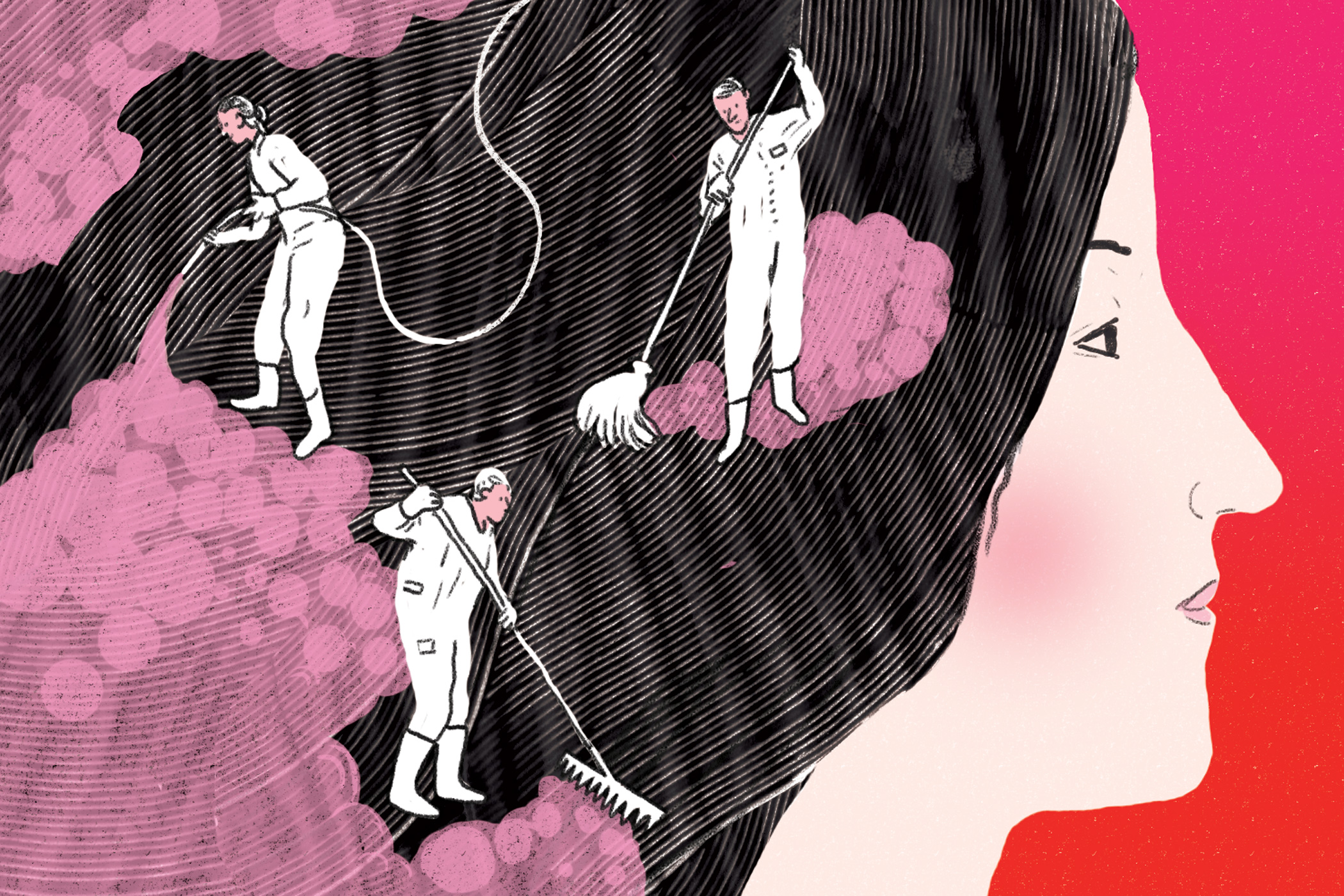
Compared to people in most of the world, Americans are a little excessive about cleanliness. But while our affinity for antibacterial soaps and sanitizers may be hurting us rather than helping us, a fondness for frequent shampooing isn’t cause for concern.
“You hear people say shampoo is bad for the scalp, or that too much of it causes dandruff, but that’s not the case,” says Dr. George Cotsarelis, director of the Hair and Scalp Clinic at the University of Pennsylvania’s Perelman School of Medicine.
While many consider scalp and hair oils naturally moisturizing, these oils nourish fungus that contribute to the scaly, patchy scalp condition known as seborrhea, Cotsarelis says. Washing helps prevent this. Also, shampooing your hair regularly helps remove dead skin cells that would otherwise accumulate and eventually slough off in visible clusters known as dandruff.
Shampooing also helps you shed dead hair follicles that can pile up between washes. “Shedding that dead hair can stimulate new growth,” Cotsarelis says. “So for a lot of different reasons, I’m not a fan of going a long time between washes.”
On the other hand, if you have dull or dry hair, you may be shampooing it too much, Cotsarelis says. This isn’t really a problem for men, most of whom tend to wear their hair short and work it into shape with product. But for women or men with long hair, shampooing too often can dry out hair and lead to breakage or split ends. “The hair itself is dead, so if you over-wash it or damage it, that doesn’t mean you’ll lose hair,” Cotsarelis says. “It’s just a matter of appearance.”
This is where conditioners can help. Too-frequent shampooing can strip away the fatty essential elements and coatings that keeps your hair strong and whole, says Dr. Adam Friedman, an associate professor of dermatology at the George Washington School of Medicine and Health Sciences. Conditioners take the place of these coatings, refortifying the hair and preventing breakage, Friedman says.
Both he and Cotsarelis say washing your hair somewhere between daily and once every two to three days is a good target. “I think most people know it when their hair feels dry or is breaking off, and so they shampoo less,” Cotsarelis says. The bigger issues come when people purposely avoid washing for many days or weeks because they think it’ll make their hair healthier.
There are exceptions, though. Cotsarelis says African-American men and women tend to have very tightly curled hair with a follicle shape that naturally wicks oil away from scalp. “If people with this hair type wash too frequently, the hair could become too brittle and dry, and will break off,” he says. For people with this hair type, it’s alright to go a week or two between washes, he says.
What exactly you should use to wash your hair? Cotsarelis says volumizing shampoos can be bad news. “They damage the hair a bit to get it to stand up and look thicker, so you have to be careful with those.” Also, shampoo products from very small companies or mom-and-pop producers tend to contain a lot of botanicals (aka plant compounds). While that’s not necessarily a bad thing, Cotsarelis says he often sees patients who have had allergic reactions to these compounds.
“I know people want to avoid chemicals, but the big national brands tend to be the most rigorously tested, so you don’t have as much to worry with them,” Cotsarelis says. “I see patients who have been washing with apple vinegar and baking soda because they thing it’s more natural, but those are acids and bases and can be very harsh and damaging.”
In the end, finding the shampoo and washing frequency that works best for your hair will take a little trial and error. But if you’re happiest with your hair’s look and feel when you wash it every day, there’s no need to scale back.
You Asked: Your Top 10 Health Questions Answered










More Must-Reads from TIME
- Cybersecurity Experts Are Sounding the Alarm on DOGE
- Meet the 2025 Women of the Year
- The Harsh Truth About Disability Inclusion
- Why Do More Young Adults Have Cancer?
- Colman Domingo Leads With Radical Love
- How to Get Better at Doing Things Alone
- Michelle Zauner Stares Down the Darkness
Contact us at letters@time.com